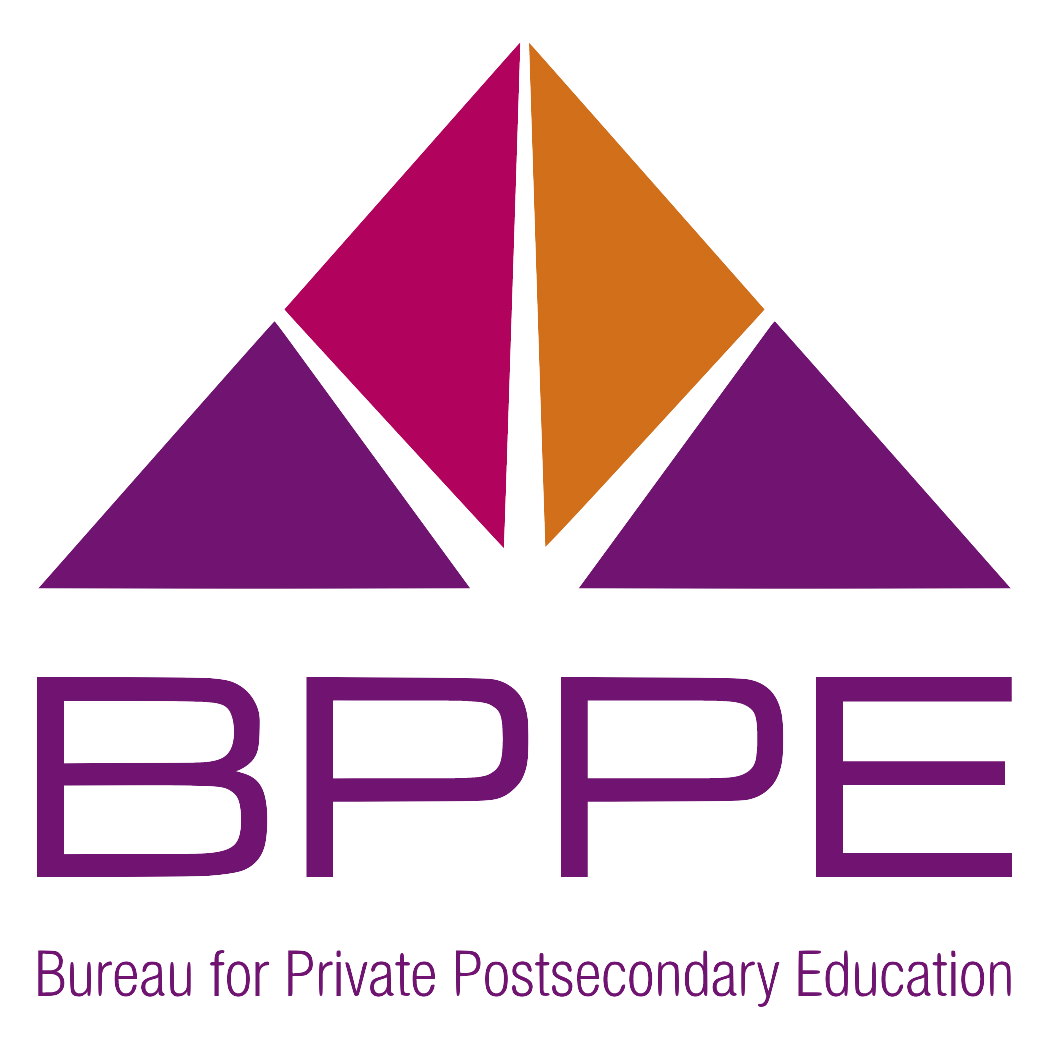
Terms of submitting this form: I agree that Bryan University may contact me regarding educational services via email, telephone, SMS text message, or automated technology at the email address and phone numbers provided. Message and data rates may apply. Message frequency may vary. Text STOP to cancel anytime. This consent is not required to enroll. For questions, call 1-888-768-6861. Visit our Privacy Policy.
Looking for a career that provides job stability combined with growth opportunity? A career in business administration provides both. With an Undergraduate Certificate from Bryan University in Business Administration, you’ll gain a specialized skill set that will help set you apart in the marketplace.
According to the Bureau of Labor Statistics, careers for Business Office Administrators are expected to add 290,100 industry job openings in the United States through the year 2032.1
Bryan University can fast-track you to success, giving you the education, skills, and confidence to qualify for a great job in less than a year!
1Bureau of Labor Statistics, U.S. Department of Labor, Occupational Outlook Handbook, General Office Clerks, at https://www.bls.gov/ooh/office-and-administrative-support/general-office-clerks.htm (visited February 9, 2024). Also online at https://www.onetonline.org/link/summary/43-9061.00. Note that job market conditions are dynamic and can change. This data is not intended to predict the market conditions that will be present when you graduate from your program and may differ based on your geographic location and other factors.
As a graduate of the Bryan University Business Administration Certificate program, you’ll have the knowledge and skills to be job-ready for career opportunities2 such as:
2Example occupations shown herein do not imply a guarantee of employment. Students are responsible for conducting occupational research for their chosen program. Employers have unique hiring practices and job-specific requirements, which may include years of experience for manager positions. Graduates with little to no prior experience should expect an entry-level position.
You’ll lead a rewarding career in employment settings such as:
You’ll receive a dedicated career services advisor that provides job search assistance, job networking best practices, interview preparation, and helps you create an eye-catching resume.
Bryan U programs are aligned with employers’ needs to ensure you get the most current and relevant skills, including:
Bryan University’s Business Administration Certificate is aligned with current competencies that employers need and developed in collaboration with industry experts. You’ll gain real-world practice experience online combined with assignments that simulate job tasks to ensure you’re job-ready upon graduation
Get valuable practice throughout your program using Microsoft Office©, including preparation for the Excel Associate Certification, which is included in tuition at no extra cost.
Simulated Job Tasks
Complete course assignments that are based on real-world cases and simulate related job tasks.



Doctor of Education, EducLeadership, University of California San Diego; Global Master of Business Administration, National University. Bachelor of Science, Psychology, Arizona State University.

Doctor of Education, EducLeadership, University of California San Diego; Global Master of Business Administration, National University. Bachelor of Science, Psychology, Arizona State University.

Master of Science, Structural Engineering, The George Washington University; Doctor of Science in Nuclear Power Plants and Fuel Technology, University of São Paulo; Bachelor of Science in Civil Engineering, Federal University of Rio de Janeiro; Post-Doctorate Qualification in Educational Management, University of Campinas.

Master of Science, Structural Engineering, The George Washington University; Doctor of Science in Nuclear Power Plants and Fuel Technology, University of São Paulo; Bachelor of Science in Civil Engineering, Federal University of Rio de Janeiro; Post-Doctorate Qualification in Educational Management, University of Campinas.

Master of Education, Specializing in Best Practices, National University; BS, Economics, Brigham Young University.

Master of Education, Specializing in Best Practices, National University; BS, Economics, Brigham Young University.

Master of Arts, Communication, Interpersonal Comm Track, University of Central Florida; Bachelor of Arts, Journalism, Specialization – Integrated Communication: Public Relations & Adve, Communication Studies minor, Butler University.

Master of Arts, Communication, Interpersonal Comm Track, University of Central Florida; Bachelor of Arts, Journalism, Specialization – Integrated Communication: Public Relations & Adve, Communication Studies minor, Butler University.

Doctor of Public Administration, West Chester University of Pennsylvania; Master of Arts, Communication Studies, West Chester University of Pennsylvania; Bachelor of Arts, Communication, Immaculata University.

Doctor of Public Administration, West Chester University of Pennsylvania; Master of Arts, Communication Studies, West Chester University of Pennsylvania; Bachelor of Arts, Communication, Immaculata University.
Master of Arts, English, Arkansas State University; Bachelor of Arts, English, Faulkner University.
Master of Arts, English, Arkansas State University; Bachelor of Arts, English, Faulkner University.
Following the completion of this program, students will be able to:




As a Bryan University student, you’ll receive these benefits and services included in tuition at no extra cost.
Prepare for third-party certifications – one certification exam attempt paid for by the university.
We give you easy access to your e-textbooks and software.
Our tutors and academic staff provide personalized support whenever you need it.
You’ll receive a starter package to ensure you’re ready to succeed in your program.
Finish in the shortest time possible and never get wait-listed for course registration.
As a graduate, audit previously completed courses free to keep your skills sharp.
You'll receive dedicated support to help you succeed in and out of the classroom.
Get expert help to ensure you're job-ready and connect with employers.
Learn from faculty with real-world experience in their field.

We recognize that life can be busy and complex, so we’ve designed the learning experience around you. You have the option to complete your homework assignments online each week at days and times convenient to you. You have the flexibility to resubmit homework to improve your grades and gain greater mastery of the course content.

We provide you with user-friendly learning technology such as adaptive digital textbooks and simulated job tasks to help you learn faster, easier, and retain more knowledge. All your efforts are recorded so you can track your progress and plan your time more effectively.

Studying online with Bryan lets you learn from the comfort of home while connecting you in live events with peers, teachers, industry professionals, and mentors. If you happen to miss the event, we record them so can you watch them later and not miss a beat. Whenever you need help with an assignment, you can schedule a tutor at any time online with the click of a button.

At Bryan, we don’t think learning online means learning alone. Connect with faculty, peers, and student support conveniently from your smartphone, tablet, or computer using Zoom, a user-friendly video app. You’ll join a vibrant community that includes industry experts who will provide support, expand your professional network, and celebrate your success along the way.
Most programs provide live classes that are also recorded in case you miss them and need to watch them later - click here for a list of live classes by program.
Didn't get the grade you wanted? At Bryan U, you can resubmit your homework to improve your grades.
You'll learn using a program that adapts to your knowledge level while helping you learn faster and retain more.
Engage with others in class using a social platform to share your thoughts on topics you're interested in.

Bryan offers affordable tuition rates for all students, no matter where they reside. We don't differentiate between residents or non-residents. We also lock-in your tuition rate when you enroll, so you can rest assured that your tuition will never increase over the length of your program.
If you apply to Bryan University with prior college credits and/or a degree, we’ll accept as many credits as possible to validate the hard work you’ve already completed. If you complete a Bryan U associate degree or undergraduate certificate, these credits are transferrable to a higher degree, such as a bachelor’s degree.
As an accredited institution, students of Bryan University who are residents of the United States may qualify for federal financial aid. Our team of dedicated financial advisors can also help you understand what other options are available to you. To learn about those who qualify, please visit our financial aid page.
For students who are veterans or active-duty members of the U.S. military, you may also use your military educational benefits, if qualified. Please see our military benefits page for more details. You may also complete the Request Information form or call us at 888-721-9773 to receive immediate assistance.
As you progress through each credential level (e.g., certificate to associate degree, or associate degree to bachelor’s degree), your tuition decreases. Plus, your tuition is locked in once you enroll so that it never goes up as long as you remain continuously enrolled in good academic standing. For a current listing of Bryan University’s tuition rates by program, please visit our tuition rates page.
To be admitted to Bryan University, prospective students must complete the following requirements:
To begin this process, we invite you to contact a member of our admissions team at 888-768-6861 or complete the Request Information form.